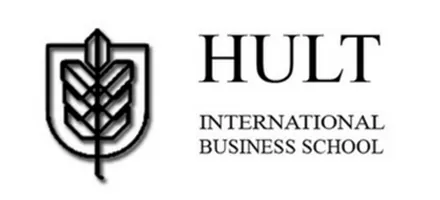
A team presents at the Michigan Ross Entrepreneurship Challenge. Photo by Mark Bialek, Ross School of Business
Not every entrepreneur is a young white male techie in Silicon Valley. That’s one lesson Stewart Thornhill hopes the students at Michigan’s Ross School of Business understand. Not to mention, there are startup opportunities outside of swiping right to choose your next date and finding the “cheapest beer and nacho discounts.”
“Those tend to be low impact problem sets,” says Thornhill, who directs the Zell Lurie Institute for Entrepreneurial Studies at Michigan Ross in an interview with Poets&Quants. “Our goal is to get them thinking beyond the undergrad bubble and to some high impact problems.”
So for the first time ever, Michigan Ross required all juniors to halt classes for three days to solve real-life entrepreneurial problems — the kinds that matter. The Entrepreneurship Challenge is part of the school’s BBA MERGE curriculum, which was first implemented last fall and is described by the school as a “boundary-breaking approach to learning.”
FLIPPING THE ENTREPRENEURIAL SWITCH
For the challenge, the entire class of juniors—about 500 total—were placed into 91 teams and charged with solving one of 17 United Nations identified global issues. After spending the entirety of Monday (Nov. 16) and Tuesday (Nov. 17) of that week researching an assigned problem and planning a business, the teams presented on Wednesday morning (Nov. 18). Of the 91 teams, six were chosen to present on Wednesday afternoon in front of a panel of their peers, professors and “distinguished business experts,” according to a release from the school.
“We wanted them to tackle some unsolved problems and start thinking in an entrepreneurial mindset and having entrepreneurial behavior,” Stewart explains. “And that’s not just starting a company. Entrepreneurs exist in many companies and sources, including the U.N.”
Some of the finalists ranged from creating app-based solutions for managing food waste to cricket farming for insect protein and human consumption to a “bus meets Uber alternative to public transportation.” The winning team came up with a plan to alleviate malnutrition and food scarcity in refugee camps by creating vertical gardens.
SOLVING FOOD SCARCITY AND MALNUTRITION IN SYRIAN REFUGEE CAMPS
For winning team member Kai Norden, his team’s business idea for the competition was a natural fit. The Stowe, Vermont-native came to the University of Michigan to major in environmental science. However, he “quickly realized how integral business is for sustainability,” and applied to the Ross School.
“I knew I liked business and Ross had a core alignment with using business as a driver for social and environmental change,” Norden says of his decision to double major in environmental science and business.
Norden and his team were tasked with trying to solve food scarcity issues. The team tapped into current national headlines and focused on food scarcity and malnutrition in Syrian refugee camps. Norden’s team worked through logistical supply chain challenges and market strategy issues to find the best ways to make food more accessible to these refugees.










